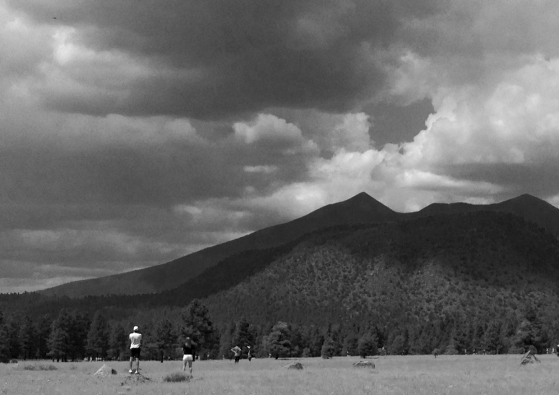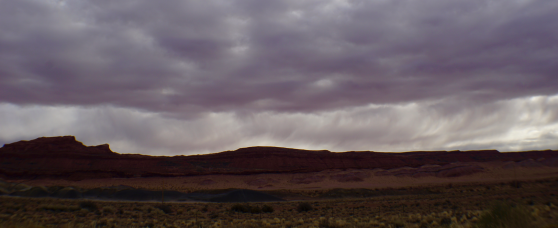
~ Buffalo Park, Flagstaff, Arizona
“There is a voice that doesn’t use words. Listen.”
–Rumi
Good morning friends,
Today’s email is about listening – an experience, a skill, a gift when done well. We’ll begin with my own essay that relates quality listening to the flow of water. Then we’ll proceed to the story of Dr. Rachel Naomi Remen and what she learned about the power of listening from renowned psychologist, Carl Rogers. Then Mary Oliver will share her poem, “Listen.” This will be followed by another revered psychologist, Eric Fromm with his 6 guidelines for effective listening. We’ll conclude with 8 TED Talks on the power of listening and “Listen To The One Who Loves You” by the Roo Planes.
The Writing: My own and Rachel Naomi Remen
Are You Listening? How Water Can Teach Us This Powerful Life Skill
By Shannon Thompson
I want to talk about water – but not the kind you’re thinking – the water of words and the motion of listening and presence. Speech and body language are like water; they flow between us and carve our moments and connections. The practice of deep listening (listening with the primary purpose of understanding another person, as opposed to listening with your primary focus on your response) is possibly the most powerful tool for forging strong relationships. Deep listening cultivates feelings of safety and trust, essential for secure human bonds. Secure bonds are obviously what close intimate relationships are built on, but the same could be said for any situation where people need to interact, communicate, educate, learn, and perform together. Deep listening is also a skill, and takes time and attention to learn.
My work as a mental performance consultant has provided me with many opportunities to learn to listen. I’ve found the metaphor of flowing water to be a very useful model in my quest to listen more deeply. The metaphor of water has taught me to pause, question, and share, ebbing and flowing with my people. Slowly, I’m following the contours, finding the speed, feeling when to press, when to yield, and when to just leave space in silence for the wind to move across the plateau. For a long time I’ve wanted to write about communication, about interaction, about appropriate intimacy. But, what I’ve learned is more in feeling and a sense of space than in words. It can all be summarized by learning to listen like water moves.
Listen like water moves? You ask. How? What do you mean? Let me explain: like water, take only the space that is given to you (let the other person tell his story); follow gravity (follow subject matter that the speaker wishes to share – at least at first). Be still sometimes and move slowly others. Only when the moment feels right run quickly (express your thoughts). But, only run if the ground drops to allow you (if the speaker offers more or asks for feedback), and keep your eyes on your feet, for the trail can turn suddenly. Pay attention. Be open to what you will notice. There are grasses and daisies and flowering cactus as well as a view that stops your heart. Anything can be encountered in our explorations of each other. Pay attention. Move like water, and slowly, at least to begin with.
I’ve made mistakes with people by making presumptions too quickly. I’ve greeted them with enthusiasm, jumped to quick conclusions, and hastened them along my trail. I’ve told them who I think they are, and sometimes I’ve been wrong. The belief that you can see people is a dangerous confidence. I’m learning to begin by sitting down at the beginning, where the ground is a still pool. Not everyone wants to run, and this space we’re in, it belongs to us both.
Share the space
This has been a helpful analogy for me. Water runs on a streambed and follows gravity. Both the water and the stream bed holds its space. Share the space, and by that I mean occupy only that which is yours. When wishing to understand another that’s not very much. Thoughts and ideas come fast to me like rapids. But this venture is not about covering terrain. Beginning a conversation is like sitting down on the first rock at the trailhead and looking around. It’s a willingness to ask the landscape where to go. Here’s an example:
“I have some thoughts regarding what we could discuss today, but I want to ask you first, what’s foremost on your mind?” I asked the singer.
(I’m surprised at least fifty percent of the time by the answer to this question. I might have sworn that the river began straight ahead, but no, it’s through the opening I didn’t see to my left. Good thing I asked; we might have been lost from the get-go.)
The singer asked, “Is it ok if I use my anger about my ex-boyfriend to energize my performance?”
“Maybe,” I said. “Can you tell me more about that?”
“Well, the thought of singing badly because I’m sad about him makes me angry, so can I use that to fire myself up?”
I needed further clarification: “So the anger is a rebellion against a side of yourself? It’s a conviction to be your best regardless of the circumstances? You’re not describing anger at him?”
“Yes, that’s it. The anger is fueling a determination to be my best.”
“Go for it.” (Anger at an individual is a distraction, anger for oneself is a focus tool)
Follow gravity
When your company is telling her story, be still and listen, like water pooling. Hear everything she has to share. As her story slows ask kind questions that might help you explore all the “eddies” – all the details of her story. Now you’re flowing slowly forward, but only as fast as she allows you. “Can you tell me more about that?” and, “is there anything else you want to add?” are good questions to make sure you have explored the space and to help her feel thoroughly heard. Often there will be something in what she has said that will help you know where to flow next.
For example, regarding the singer above, at one point she said of her boyfriend, “he still texts me you know.”
“How do you feel about that?” I asked.
“I don’t know. It’s kind of nice to hear from him.” She sighed. “It’s ok for now.”
“Ok, if more comes to your mind about that later feel free to bring it up.”
“Ok,” she told me. It was time to flow on.
Believe their story
When you are listening deeply to someone, believe what he tells you about how he sees the world right now, at least at first. This is his current reality. Let him deviate to the left – let him show you what his world is like. I see, down this way, even though its dark, this is the only way you know. You might object to some of the stories that this person tells about his life. You’re aware of an easier route, but the only path you can walk together right now is this one. Water cannot demand that the streambed change shape immediately. Go with him. Let him show you around. This is a very narrow channel, and you’re right it’s hard to see; I can understand why you’re scared; I’m scared too. Let me tell that back to you to make sure I’ve got it right – so we can stick together and no one gets left behind.
The practice of understanding another person’s emotional experience is called empathy. Empathy is a skill that is able to be cultivated, which is fortunate, for strong levels of empathy are a major contributor to long-lasting relationships.
Here’s an example:
“No one here likes me,” said the young man seated across from me.
“How can you tell that no one likes you?” I asked.
“Well, no one says ‘good morning’ when I arrive, and one group always have their coffee break together, but they never invite me.”
“Ah,” I grimace, “that’s hard. How do you feel when you watch them leave?”
“I just think, ‘there they go again!’ and I feel angry, honestly.”
“What kind of thoughts go through your mind when you feel angry like that?”
“Just that I’m strange, and I never fit in,” he said softly, looking down.
“I hear you,” I told him, “I’ve felt like that before too.”
Now, in all likelihood this young man’s co-workers don’t have a particular dislike for him. They probably don’t say good morning when he passes them because they’re focused on their work. They possibly don’t invite him for coffee because they don’t feel like he wants to go. His body language is withdrawn, and he rarely stops to talk with any of them. But, in order to help him in the long run, this person must feel heard. He must trust that I’ve seen through his eyes for a little while before I try to change what he sees.
Interestingly, when I’ve listened really patiently to someone who is describing a negative personal circumstance which is probably exaggerated, he often re-balances himself before I need to try. As he comes to the end of telling his story, and a few pauses are allowed between us, this young man might say, “You know they used to invite me for coffee, months ago, but I always said no. That might be why they don’t ask anymore.” This is a very helpful broadening of perspective, and an invitation to offer more support of this way of thinking.
Fall Where There’s Space
Usually, someone’s story has an ending. You’ll feel it when you get close. The person’s energy will subside. There will be longer silences before someone speaks. You’ll catch a glimpse of the cliff where the streambed tips, and the water pours faster over a ledge. Their gravity has begun to drop, and now you can follow faster. Like this:
“I hear you that you feel like no one likes you at work. That’s a tough way to feel. But you know what? Most of us humans are too busy worrying about our own lives to put any real thought into disliking a co-worker. Are you sure they don’t like you? You arrive at work later than them, right? How do you feel about initiating the morning hello?”
“I guess I could give that a try.” He looked unsure.
I continued: “people read others’ body language very quickly. If you’re feeling like your co-workers don’t like you, you might be unintentionally displaying body language that causes them to feel like you don’t like them. Interestingly, we tend to like people who like us. So, if you want to feel more liked try appearing as if you like them first.” He nodded with understanding.
Fly Above the River
Upon the conclusion of our conversation (and sometimes while we’re still together, near the end). I’ll “fly above the river” and try to view it as a whole. I do this by asking myself this question: “why is he telling me this story? What is he hoping I will hear? What is he hoping I will see?” When you’re in the river of listening it’s easy to get swept up in the emotions and details. Flying above the river can provide a better view when trying to understand a person. It’s taken me time to learn that some people don’t come to me to solve their problems, they come to me to have someone to speak their problems out loud to, and this enables them to solve them themselves. Here’s an example:
“You know, in the second set, I lose focus and I go to my backhand, but I know I shouldn’t do that! My forehand is way stronger. Next time I need to remember that when I’m nervous I need to stick with my forehand no matter what.”
This tennis player is visiting me for his monthly appointment. I’ve learned over time that the way I can help him the most is by just listening to him talk through his matches. I have little technical knowledge when it comes to tennis, and I’ve tried to ask questions to understand, but this just seems to frustrate him. My questions and solutions come up against him like waves against stones. After one meeting, where I’d said almost nothing and was feeling like I hadn’t helped him at all, he said: “You know Shannon, it really helps me just to talk through this stuff. I feel so much better now.” Sometimes the greatest help you can give someone is to just listen. Nothing more.
“Over time I would learn to listen for those wonderful moments when people spoke a kind of personal music, which left a rhythmic architecture of who they were. I would be much more interested in those rhythmic architectures than in the information they might or might not reveal.
~ Anna Deveare Smith
The next time you stand before someone who wants to talk, remember to be like water. Share the space between you; follow gravity; believe her story, at least at first, then pour what you have to say when the space appears. Finally, fly above the river; ask, why is she telling me this story, and remember, often listening is enough. If you’ve listened well the next time you meet this person she will look at you differently. In fact she will look for you. Something will have changed in her eyes. You see, few people know how to listen like water. Few want to hear everything she has to say. It’s always in the next visit – the next meeting of eyes – that you see her relief that you did.

~ Flagstaff, Arizona
Rachel Naomi Remen (From Kitchen Table Wisdom)
“While I was still part of the Stanford faculty, I was one of a small group of traditional physicians and psychologists invited to a day-long master’s class with Dr. Carl Rogers, a pioneering humanistic psychotherapist. I was young and proud of being an expert, sought after for my opinions and judgments. Rogers’s approach to therapy, called Unconditional Positive Regard seemed to me to be a deplorable lowering of standards. Yet it was rumored that his therapeutic outcomes were little short of magical. I was curious and so I went.
Rogers was a deeply intuitive man, and as he spoke to us about how he worked with his patients, he paused often to put into words what he did instinctively and naturally. Very different from the articulate and authoritative style of presentation I was accustomed to at the medical center. Could someone so seemingly hesitant have any expertise at all? I doubted it. From what I could gather, Unconditional Positive Regard came down to sitting in silence and accepting everything the patient said without judgment or interpretation. I could not imagine how this might prove helpful.
Finally, Dr. Rogers offered us a demonstration of his approach. One of the doctors in the class volunteered to act as his client and they rearranged their chairs to sit opposite one another. As Rogers turned toward him and was about to begin the demonstration session he stopped and looked thoughtfully at his little audience of experts, myself among them. In the brief silence, I shifted impatiently in my chair. Then Rogers began to speak. ‘Before every session I take a moment to remember my humanity,’ he told us. ‘There is no experience that this man has that I cannot share with him, no fear that I cannot understand, no suffering that I cannot care about, because I too am human. No matter how deep his wound, he does not need to be ashamed in front of me. I too am vulnerable. And because of this, I am enough. Whatever his story, he no longer needs to be alone with it. This is what will allow his healing to begin.’
The session that followed was profound. Rogers conducted it without saying a single word, conveying to his client simply by the quality of his attention a total acceptance of him exactly as he was. The doctor began to talk and the session rapidly became a great deal more than the demonstration of technique. In the safe climate of Rogers’ total acceptance, he began to shed his masks, hesitantly at first and then more and more easily. As each mask fell, Rogers welcomed the one behind it unconditionally, until finally he glimpsed the beauty of the doctor’s naked face. I doubt that even he himself had ever seen it before. By that time many of our own faces were naked and some of us had tears in our eyes. I remember wishing that I had volunteered, envying this doctor the opportunity to be received by someone in such a total way. Except for those few moments with my godfather, I had never experienced that kind of welcome…
What Rogers was pointing to is, of course, a very wise and basic principle of healing relationship. Whatever the expertise we have acquired, the greatest gift we bring to anyone who is suffering is our wholeness.
Listening is the oldest and perhaps the most powerful tool of healing. It is often through the quality of our listening and not the wisdom of our words that we are able to effect the most profound changes in the people around us. When we listen, we offer with our attention an opportunity for wholeness. Our listening creates sanctuary for the homeless parts within the other person. That which has been denied, unloved, devalued by themselves and by others. That which is hidden.
In this culture the soul and the heart too often go homeless. Listening creates a holy silence. When you listen generously to people, they can hear truth in themselves, often for the first time. And in the silence of listening, you can know yourself in everyone. Eventually you may be able to hear, in everyone and beyond everyone, the unseen singing softly to itself and to you.
Not long ago I was walking in the rain in the place where I was born, New York City, thinking of the green place where I now live, grateful for the ease in which things grow there. Not all things have room to grow and fulfill themselves. The rain made me intensely aware of the hardness and grayness of this world of cement and brick and the awesome capacity of human beings to prevail over what is natural and bend it to their will. For miles and miles there seemed to be nothing living that could respond to the rain. But the important thing is that the rain comes. The possibility of growth is there even in the hardest of times. Listening is like the rain.”
“When you listen to someone, you should give up all your preconceived ideas and your subjective opinions; you should just listen to him, just observe what his way is. We put very little emphasis on right and wrong or good and bad. We just see things as they are with him, and accept them. This is how we communicate with each other. Usually when you listen to some statement, you hear it as a kind of echo of yourself. You are actually listening to your own opinion. If it agrees with your opinion you may accept it, but if it does not, you will reject it or you may not even really hear it.”
~ Shunryu Suzuki

The Poetry: Mary Oliver
LISTEN
By Mary Oliver
Listen
Everyday
I see or hear
something
that more or less
kills me
with delight,
that leaves me
like a needle
in the haystack
of light.
It was what I was born for —
to look, to listen,
to lose myself
inside this soft world —
to instruct myself
over and over
in joy,
and acclamation.
Nor am I talking
about the exceptional,
the fearful, the dreadful,
the very extravagant —
but of the ordinary,
the common, the very drab,
the daily presentations.
Oh, good scholar,
I say to myself,
how can you help
but grow wise
with such teachings
as these —
the untrimmable light
of the world,
the ocean’s shine,
the prayers that are made
out of grass?
~ Alain De Botton
The Science and the Strategy: The 6 Rules of Listening by Psychologist Eric Fromm (From The Art Of Listening)
- The basic rule for practicing this art is the complete concentration of the listener.
- Nothing of importance must be on his mind, he must be optimally free from anxiety as well as from greed.
- He must possess a freely-working imagination which is sufficiently concrete to be expressed in words.
- He must be endowed with a capacity for empathy with another person and strong enough to feel the experience of the other as if it were his own.
- The condition for such empathy is a crucial facet of the capacity for love. To understand another means to love him — not in the erotic sense but in the sense of reaching out to him and of overcoming the fear of losing oneself.
- Understanding and loving are inseparable. If they are separate, it is a cerebral process and the door to essential understanding remains closed.
“Listen now. When people talk listen completely. Don’t be thinking what you’re going to say. Most people never listen. Nor do they observe. You should be able to go into a room and when you come out know everything that you saw there and not only that. If that room gave you any feeling you should know exactly what it was that gave you that feeling. Try that for practice. When you’re in town stand outside the theatre and see how the people differ in the way they get out of taxis or motor cars. There are a thousand ways to practice. And always think of other people.”
~ Ernest Hemingway
The Spiritual: Pastor Eugene Peterson in This On-Being podcast with Krista Tippett
Ms. Tippett:
Something you said about prayer also strikes me as — it strikes me that when you talk about the power of words, the importance and care with them, it’s not just speaking, it’s also about reading, it’s also about listening. You talk about if we pray without listening, we pray out of context. It seems to me the same thing kind of comes through about speaking. If we speak without listening, we speak out of context, and listening also doesn’t accompany a lot of our public speech now.
Mr. Peterson:
And I have — people have taught me this. But one of the best teachers for me has been Karl Barth.
Ms. Tippett:
Yes.
Mr. Peterson:
And he’s just adamant about when you pray you don’t ask God for things. You pray to listen, and then when you’ve listened, you can hear God speak, and take you into paths you never thought about.
Ms. Tippett:
You propose quite a different relationship. I mean,
you say, “God speaks to us. Our answers are our prayers.”
Mr. Peterson:
Mm-hmm. Does that not make sense?
Ms. Tippett:
Yeah, no it does. It’s just a — it’s a whole different way to — entry point to thinking about what’s happening in prayer to, I think, kind of a Protestant, Western Protestant approach that’s been there in many churches for a while.
Mr. Peterson:
But for years I have — the first thing in the morning, I have about an hour of just quiet and coffee. And — but I picked seven Psalms that I thought were, kind of covered the waterfront of what’s going on. And I memorized them. And I picked pretty long Psalms, so I’d have to work at it. And so, on Sunday, I do Psalms 92, which is a Psalm for the Sabbath. And then I go to Psalms 68, which is kind of a — it’s a collection of pieces of Psalms from different kind of settings, but when you read through the whole thing, and that’s a pretty long Psalm you realize all of these things kind of fit together if you’re paying attention.
Ms. Tippett:
When you say all these things, do you mean all the different moves, all the different moves that a Psalm makes from praise to fury to desolation?
Mr. Peterson:
Yeah, right.
Ms. Tippett:
Is that what you mean? That…
Mr. Peterson:
Right. They’re not logically connected. But then with an imagination, they start to fit together. That’s what I mean. And then Psalm 18 is a Psalm just full of metaphor. And just — you’re just overwhelmed by all the ways in which you can reimagine God working in your life. And on the just — I do seven of those. And I’ve been doing that for years. And so, then — you want to know the whole story?
Ms. Tippett:
Yeah.
Mr. Peterson:
Then I shut up.
Ms. Tippett:
[laughs] Mr. Peterson:
And I just breathe deeply and for another 15, 20, 25 minutes, just try to empty myself of everything. But there’s enough going on through that first entry that it seeps into your imagination. And so you’re not really just emptying yourself, you’re emptying yourself of a certain amount of clutter so that the words you really need to know kind of fit in. I don’t think it’s a very good idea to give people a pattern to work with in prayer. We’re all a little bit different. And I did that myself. I just figured out what I seemed possible to do, and I did it. But, when I was a pastor, I would spend time with people figuring out what to do.
Ms. Tippett:
Helping them…
Mr. Peterson:
Helping them.

~ The Painted Desert, Arizona
The Cinematic: TED Talks about the power of listening
The Musical: “Listen To The One Who Loves You” by The Roo Planes
The Question: Can you remember a time when you felt truly listened to?
Friends, may you listen and be heard today.
Sincerely,
Shannon
